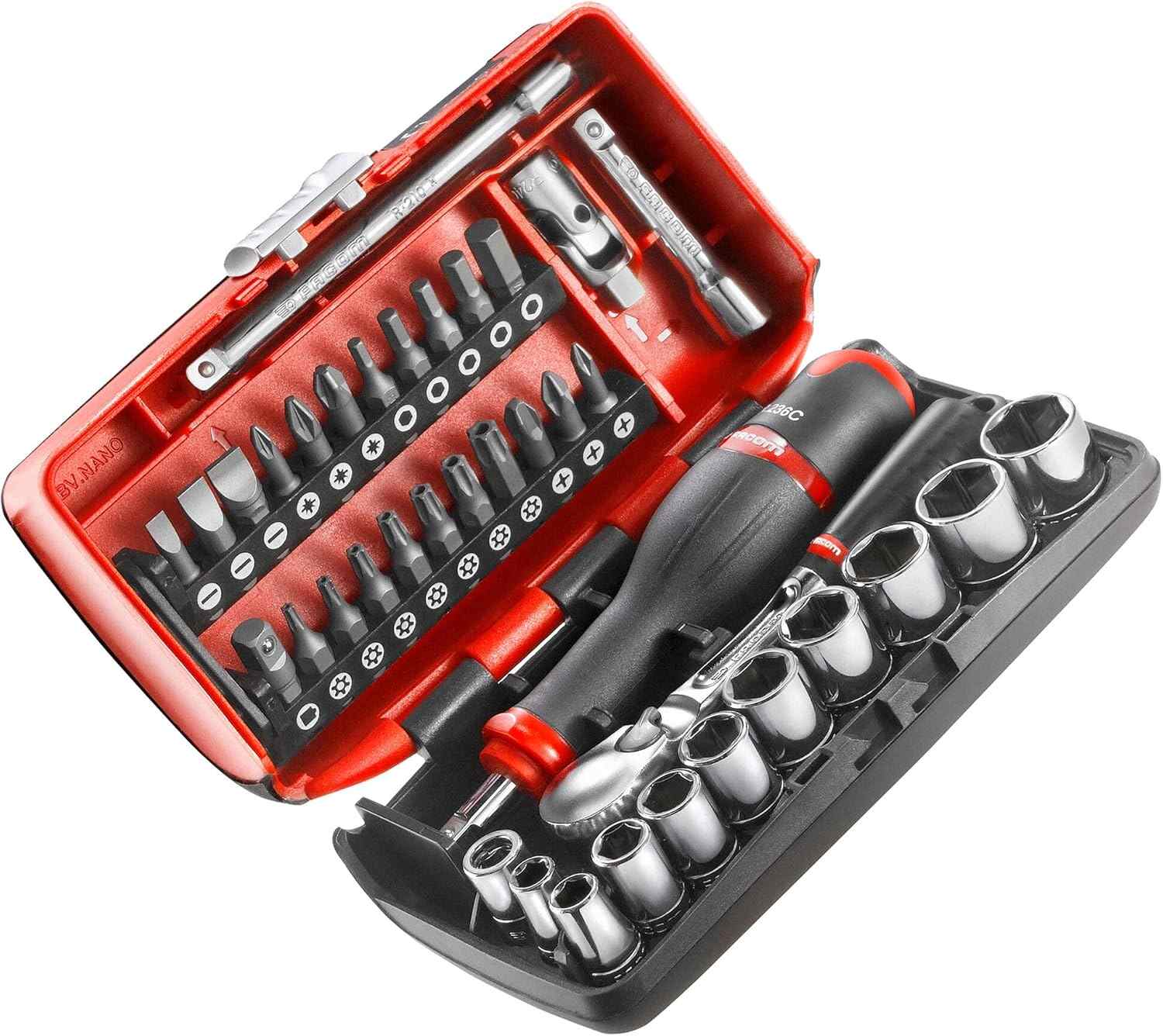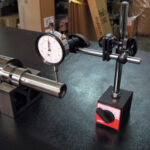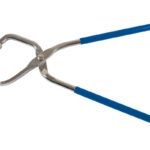What is a 1/4 Socket Set?
A 1/4 socket set is a collection of sockets and accessories designed to fit 1/4-inch square drive ratchets, extensions, and handles. These compact and versatile sets are ideal for working on smaller fasteners, such as those found in electronics, appliances, bicycles, and various other applications where space is limited.
The set typically includes a range of socket sizes, both in metric and standard (SAE) measurements, allowing you to tackle a wide variety of projects. Common socket sizes in a 1/4 socket set range from around 3/16 inch to 1/2 inch or 4mm to 13mm.
In addition to the sockets themselves, a 1/4 socket set often includes a ratchet handle, extensions of varying lengths, and sometimes additional accessories like universal joints, bit holders, or screwdriver bits. These components work together to provide access to tight spaces and awkward angles, making it easier to loosen or tighten fasteners in confined areas.
With their compact size and versatility, 1/4 socket sets are commonly used by mechanics, hobbyists, DIY enthusiasts, and professionals in various trades, including electronics repair, plumbing, HVAC, and more. They offer a convenient and portable solution for tackling smaller jobs where larger socket sets may be too cumbersome or unnecessary.
Table of Contents
Types of 1/4 Socket Sets
A 1/4 socket set typically includes a variety of socket sizes and types to accommodate different fasteners and applications. The most common variations include:
Standard vs. Deep Sockets: Standard sockets have a shallower depth, while deep sockets are longer and designed to reach fasteners in recessed or hard-to-access areas.
Metric vs. SAE Sizes: Socket sets often include both metric and SAE (Society of Automotive Engineers) sized sockets to work with different fastener systems. Metric sizes are based on the millimeter scale, while SAE sizes follow inch-based measurements.
Socket Drive Types:
- 6-Point Sockets: These sockets have six points or flats on the drive end, providing a more secure grip on hexagonal fasteners. They are less likely to round off or slip, but may not fit in tight spaces.
- 12-Point Sockets: With 12 points or flats, these sockets can grip fasteners at more angles, making them more versatile in tight spaces. However, they may be more prone to rounding off fasteners if excessive force is applied.
Ratchet Mechanisms: Many 1/4 socket sets include a ratcheting mechanism that allows the socket to be turned with a back-and-forth motion, rather than having to reposition the ratchet handle for each turn. This feature can greatly increase efficiency and accessibility in confined spaces.
Materials and Construction
1/4 socket sets are typically constructed from high-quality chrome vanadium steel, renowned for its exceptional strength, durability, and impact resistance. This alloy steel offers superior toughness and wear resistance, ensuring that the sockets can withstand the rigors of frequent use and high torque applications without deforming or breaking.
The chrome component in the alloy enhances corrosion resistance, protecting the sockets from rust and oxidation, even in damp or humid environments. This feature ensures longevity and maintains the sockets’ pristine appearance over an extended period.
To provide a secure grip and prevent slippage during use, the sockets often feature knurled surfaces or grooves on their outer surfaces. This design element enhances friction and allows for a firm hold, even when working with oily or greasy fasteners.
Many 1/4 socket sets boast a mirror-polished finish, lending them a sleek and professional appearance. This finish not only enhances the visual appeal but also facilitates easy cleaning and maintenance, ensuring that the sockets remain in pristine condition for years to come.
Advantages of 1/4 Socket Sets
One of the primary advantages of 1/4 socket sets is their compact size. These sets are designed to be smaller and more lightweight than their larger counterparts, making them incredibly convenient for a wide range of applications. Their compact nature allows for easy storage and transportation, making them an ideal choice for professionals on the go or DIYers with limited workspace.
Maneuverability is another significant benefit of 1/4 socket sets. Their smaller size and lightweight construction enable users to navigate tight spaces and awkward angles with ease. This increased maneuverability is particularly beneficial when working on intricate machinery, automotive repairs, or any task that requires reaching confined areas.
Access to tight spaces is a direct result of the compact design of 1/4 socket sets. Their smaller sockets and ratchets can fit into cramped locations where larger tools simply cannot reach. This advantage is invaluable in industries such as automotive repair, plumbing, and electronics, where access to tight spaces is often necessary.
Portability is a key advantage of 1/4 socket sets. Due to their compact size and lightweight nature, these sets are incredibly easy to carry around. Whether you’re a professional mechanic or a DIY enthusiast, you can easily transport your 1/4 socket set to job sites, garages, or any location where you need to tackle a project.
Versatility is another strength of 1/4 socket sets. Despite their compact size, these sets often include a wide range of socket sizes and drive tools, allowing users to tackle a variety of tasks. From small electronics to light automotive work, 1/4 socket sets can handle a multitude of applications, making them a valuable addition to any toolbox.
Applications and Uses
1/4 inch socket sets are versatile tools that find applications in various industries and DIY projects. Their compact size and ease of use make them suitable for a wide range of tasks, including automotive repair, motorcycle maintenance, bicycle repair, electronics, appliances, and furniture assembly.
Automotive Repair: 1/4 inch socket sets are essential tools for automotive enthusiasts and professionals alike. They are commonly used for tasks such as removing and installing engine components, adjusting suspension components, and tightening or loosening fasteners in tight spaces. Their small size allows them to access hard-to-reach areas, making them indispensable for working on modern vehicles with cramped engine bays.
Motorcycle Maintenance: The compact nature of 1/4 inch socket sets makes them ideal for working on motorcycles. They are particularly useful for tasks such as adjusting brake calipers, tightening or loosening fasteners on the engine, and performing routine maintenance on various motorcycle components.
Bicycle Repair: For bicycle enthusiasts and mechanics, 1/4 inch socket sets are valuable tools for assembling and repairing bicycles. They are commonly used for tasks such as adjusting derailleurs, tightening or loosening bolts on the frame, and installing or removing components like pedals and handlebars.
Electronics: In the electronics industry, 1/4 inch socket sets are widely used for assembling and disassembling electronic devices, such as computers, smartphones, and other gadgets. Their small size allows them to access tight spaces and work on delicate components without causing damage.
Appliances: Homeowners and appliance repair technicians often rely on 1/4 inch socket sets for maintaining and repairing household appliances like refrigerators, washing machines, and ovens. These socket sets are particularly useful for tightening or loosening fasteners in confined spaces and accessing hard-to-reach areas within the appliances.
Furniture Assembly: When assembling flat-pack furniture or making repairs to existing furniture, 1/4 inch socket sets come in handy. They are commonly used for tightening or loosening bolts, screws, and other fasteners, ensuring a secure and sturdy assembly or repair.
With their versatility and compact size, 1/4 inch socket sets have become essential tools for professionals and DIY enthusiasts alike, enabling them to tackle a wide range of tasks across various industries and applications.
Choosing the Right 1/4 Socket Set
Selecting the appropriate 1/4 socket set is crucial to ensure efficient and safe operation. The first step is to consider the intended use and the types of projects or tasks you’ll be undertaking. For light-duty applications, such as basic household repairs or minor automotive work, a basic 1/4 socket set with a limited number of pieces may suffice. However, if you plan to tackle more demanding tasks or work on a wide range of projects, you’ll need a more comprehensive set with a larger selection of socket sizes and drive types.
The socket drive type is another essential factor to consider. 1/4 socket sets typically come with either standard or metric socket sizes, or a combination of both. Standard sockets are commonly used for American and British machinery, while metric sockets are designed for European and Asian equipment. If you work on a variety of vehicles or machines, a set with both standard and metric sockets can be invaluable.
The size range of the sockets is also crucial. Most 1/4 socket sets cover a range of sizes, typically from 1/4 inch to 1/2 inch or larger. Consider the types of fasteners you’ll be working with and ensure that the set you choose has the appropriate sizes to accommodate them. Additionally, pay attention to the number of pieces in the set, as a larger selection can provide more versatility and flexibility.
Brand reputation is another important consideration when choosing a 1/4 socket set. Reputable brands are known for their quality, durability, and precision manufacturing. While some budget-friendly options may be tempting, investing in a high-quality set from a trusted brand can save you time, frustration, and potential safety issues in the long run.
Finally, consider any additional features or accessories that may be included in the set. Some sets come with extension bars, universal joints, or ratcheting mechanisms, which can enhance the functionality and convenience of the set. Evaluate your specific needs and choose a set that offers the features and accessories that will make your work more efficient and enjoyable.
Care and Maintenance
Proper care and maintenance are crucial for ensuring the longevity and optimal performance of your 1/4 socket set. Here are some essential tips to keep your set in top condition:
Proper Storage: After use, always store your 1/4 socket set in a clean, dry place, preferably in its original case or a dedicated tool box. This will protect the sockets and accessories from moisture, dust, and potential damage.
Cleaning: Regularly clean your 1/4 socket set to remove dirt, grease, and debris that can accumulate during use. Use a mild degreaser or solvent and a soft-bristle brush to gently scrub away any grime. Avoid using abrasive cleaners or materials that could scratch or damage the sockets.
Rust Prevention: To prevent rust and corrosion, apply a thin layer of machine oil or rust-preventative spray to the sockets and accessories after cleaning. This will create a protective barrier against moisture and oxidation.
Handling Tips: Handle your 1/4 socket set with care to avoid dropping or misusing the components. Avoid using excessive force or leverage, as this can lead to damage or deformation of the sockets or ratchet mechanism.
Warranty Information: Most reputable manufacturers offer warranties on their 1/4 socket sets, covering defects in materials and workmanship. Be sure to register your set and keep the warranty information handy in case you need to make a claim.
By following these care and maintenance guidelines, you can extend the lifespan of your 1/4 socket set and ensure it remains a reliable and efficient tool for all your automotive, household, or DIY projects.
Safety Considerations
When using a 1/4 socket set, it’s crucial to prioritize safety to prevent potential injuries and damage. Proper usage techniques are essential, as improper handling can lead to accidents. Always follow the manufacturer’s instructions and heed the recommended torque specifications for each socket and fastener.
Avoid over-torquing, as this can cause sockets or fasteners to break, potentially resulting in flying debris or injury. When working with tight spaces or hard-to-reach areas, use socket extensions judiciously, as excessive force or leverage can lead to socket failure or slippage.
If using impact sockets, exercise extra caution. Impact sockets are designed to withstand higher torque levels but can still fail if misused or subjected to excessive force. Never use standard sockets with impact tools, as they are not designed to handle the high torque and may shatter, posing a serious safety hazard.
Additionally, always wear appropriate personal protective equipment (PPE), such as safety glasses or goggles, to protect your eyes from flying debris or sparks. Gloves can also help improve grip and prevent hand injuries.
Popular 1/4 Socket Set Brands
When it comes to 1/4 socket sets, there are several popular brands that stand out for their quality, durability, and value. Here’s a comparison of some of the top brands:
Craftsman: Known for their lifetime warranty and affordability, Craftsman socket sets are a popular choice among DIYers and professionals alike. Their 1/4 socket sets are made from durable alloy steel and feature a well-designed ratchet mechanism. While not the most premium option, Craftsman offers a good balance of quality and cost.
Snap-on: Widely regarded as one of the best in the industry, Snap-on socket sets are favored by professional mechanics for their exceptional strength and precision. Their 1/4 socket sets are crafted from high-quality alloy steel and feature a smooth ratcheting action. However, this premium quality comes at a higher price point.
Stanley: A trusted name in the tool industry, Stanley offers a range of 1/4 socket sets that cater to both DIY enthusiasts and professionals. Their sets are reasonably priced and feature a corrosion-resistant finish, making them a reliable choice for various applications.
Tekton: While not as well-known as some other brands, Tekton has gained a reputation for producing high-quality socket sets at an affordable price point. Their 1/4 socket sets are made from durable chrome vanadium steel and come with a lifetime warranty, making them a great value option.
Gearwrench: Gearwrench is known for their innovative ratcheting mechanisms, which provide exceptional access in tight spaces. Their 1/4 socket sets feature a compact design and are constructed from high-quality materials, making them a popular choice among mechanics and automotive enthusiasts.
When choosing a 1/4 socket set brand, consider factors such as your intended use, budget, and the brand’s reputation for quality and durability. While premium brands like Snap-on offer unmatched performance, more budget-friendly options like Craftsman and Tekton can provide excellent value for DIY projects and general household tasks.
Accessories and Add-ons
While a basic 1/4 socket set provides the essential sockets and ratchet handle, many additional accessories can enhance the versatility and convenience of using these tools. Some popular add-ons include:
Extensions: These are slender rods that can be attached to the ratchet handle, allowing you to reach into tight spaces or work around obstructions. Extensions come in various lengths, from just a few inches to over a foot long.
Universal Joints: Also known as U-joints or flex joints, these accessories provide additional flexibility and maneuverability. They allow the socket to pivot and rotate, making it easier to access fasteners at awkward angles or in confined spaces.
Bit Sockets: In addition to traditional sockets, many 1/4 socket sets include bit sockets that can hold various types of driver bits, such as Phillips, flathead, Torx, and hex bits. This versatility allows you to tackle a wider range of fastener types with a single set.
Ratchet Handles: While most 1/4 socket sets come with a basic ratchet handle, some manufacturers offer upgraded or specialized handles. These may include longer or shorter handles for better leverage or control, or handles with built-in flex joints or quick-release mechanisms.
Storage Cases: To keep your 1/4 socket set organized and protected, many sets come with a sturdy storage case or pouch. These cases often feature molded compartments or trays to hold each piece securely in place, preventing loss or damage during transport or storage.
By investing in these additional accessories, you can significantly expand the capabilities of your 1/4 socket set, making it easier to tackle a wider range of projects and work in various environments.
Cost and Value Considerations
When it comes to 1/4 socket sets, there is a wide range of prices available in the market. Entry-level sets can be found for as low as $10-$20, while premium sets from reputable brands can cost upwards of $100 or more. It’s essential to strike a balance between cost and quality, as cheaper sets may not offer the durability and precision required for demanding tasks.
Generally, higher-priced 1/4 socket sets are made from superior materials like chrome vanadium steel or impact-resistant alloys, ensuring longer service life and better performance. These sets often come with a larger number of sockets, extensions, and accessories, providing more versatility for various applications.
While it may be tempting to opt for the most affordable option, it’s crucial to consider the lifetime value of a 1/4 socket set. A well-made set can last for years, even decades, with proper care and maintenance, making it a worthwhile investment in the long run. Cheaper sets, on the other hand, may need to be replaced more frequently due to wear and tear, potentially costing more in the long run.
Many reputable manufacturers offer warranties on their 1/4 socket sets, ranging from limited lifetime warranties to multi-year coverage against defects in materials and workmanship. This added protection can provide peace of mind and further enhance the value of your investment.
Ultimately, the cost and value of a 1/4 socket set depend on your specific needs, the frequency of use, and the level of quality and durability you require. It’s essential to carefully evaluate your requirements and budget to make an informed decision that balances cost and long-term value.



